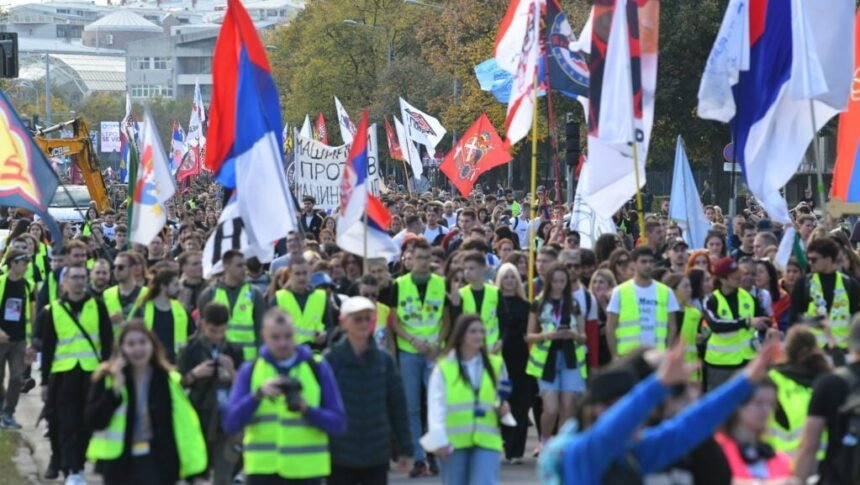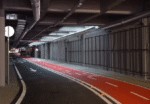Thousands of mostly young people in Serbia began a two-day march from Belgrade yesterday aiming to join a major gathering in Novi Sad this weekend, marking the anniversary of a deadly railway station collapse, reports the Associated Press (AP).
The tragedy, which killed 16 people on November 1 last year, has sparked a youth-led protest movement against autocratic President Aleksandar Vučić, AP notes.
Protesters argue that the victims died due to corruption and mismanagement in the reconstruction of the station. They are demanding accountability for the disaster and early parliamentary elections to potentially remove Vučić’s government.
Students, waving flags, led a 90-kilometer march toward Novi Sad, where tens of thousands are expected to gather, increasing pressure on the president. AP reports that student groups from across Serbia have been walking for two weeks to converge in Novi Sad.
Belgrade residents came out to support the marchers, honking car horns, using whistles, and expressing solidarity, with many visibly emotional.
Students expressed their motivation: Mihajlo Jovanović, a sports academy student, said he joined the march “because nothing has changed”, hoping for meaningful reform. Ana Marija Šešlija, a medical student, emphasized that their struggle continues and they remain actively engaged.
AP also notes that in recent months, authorities have detained dozens of students and protesters, and the police have been accused of brutality, including beatings and arbitrary arrests.
Despite 13 individuals being charged over the accident, no trial date has been set, and critics fear the case may collapse due to high-level corruption, which allegedly contributed to fatal negligence and unsafe reconstruction practices.
President Vučić has labeled the student demonstrators as “terrorists supported by the West” without presenting evidence, while the ruling Serbian Progressive Party (SNS) organized counter-rallies, further escalating political tensions.
AP highlights that Serbia’s EU accession process is stalled, partly because of Vučić’s close ties with Russia and China and concerns over democratic backsliding.







